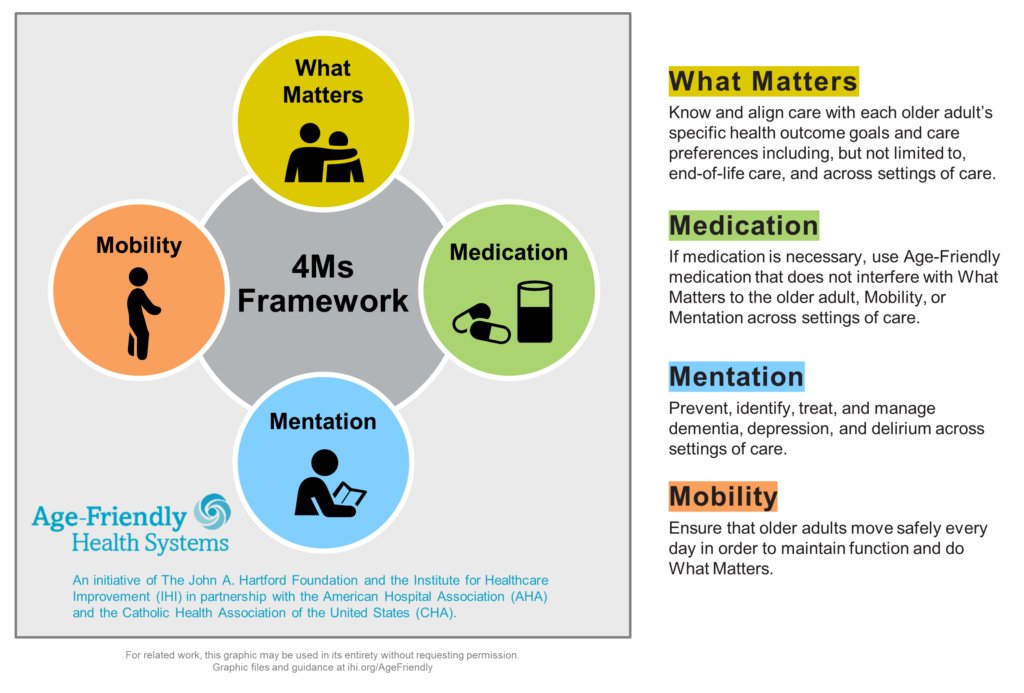
Asking patients “What matters to you?” instead of “What is the matter?” is a shift of emphasis I first heard advocated years ago at one of the Institute for Healthcare Improvement’s National Forum conferences. To learn and honor each patient’s preferences should by now be a natural part of delivering care, but it remains a work in progress for much of the health care system.
Seeing “What Matters” identified as one of four components of IHI’s Age-Friendly Health Systems framework led me to think anew about this important concept. In particular, I’m aware that for some of us, in some circumstances, knowing what matters involves sincere introspection and consideration of deeply personal issues. The answer is not always obvious or easy. For those reasons, healthcare professionals asking “What matters to you” can be the first step in true patient engagement.
I think of the generation of nonagenarians in my family — we have quite a few — for whom “What matters?” is an urgent question. They face complex medical issues and for some, the end-of-life horizon draws near. There are some things about which my 90+ year-old family members may be quickly, definitively certain; about other things, they may be less clear and sometimes not even able to grasp the question. As a group, they seem to have a generational aversion to voicing a desire for something. Many of them were raised to avoid thinking about the world in terms of “What I want,” to avoid either being disappointed or seeming to be selfish. Things that prompt the “what matters to you” question don’t have to be deeply existential, but when they are, clinicians or family caregivers have an opportunity to engage with others in a very meaningful way.
More About Age-Friendly Health Systems
 The Age-Friendly Health Systems program mentioned above provides hospitals and providers with a model for evidence-based, interdisciplinary care for adults at age 65 and older. It is supremely patient-centered and in many ways models what good care should be regardless of the patient’s age.
The Age-Friendly Health Systems program mentioned above provides hospitals and providers with a model for evidence-based, interdisciplinary care for adults at age 65 and older. It is supremely patient-centered and in many ways models what good care should be regardless of the patient’s age.
The IHI website offers a guide and videos that exhelp explain how to implement the four-part age-friendly framework: What Matters, Medication, Mentation and Mobility. It also presents detailed case studies from hospitals that have used the program, including Anne Arundel Medical Center, MaineHealth, Stanford Health Care, and others.




